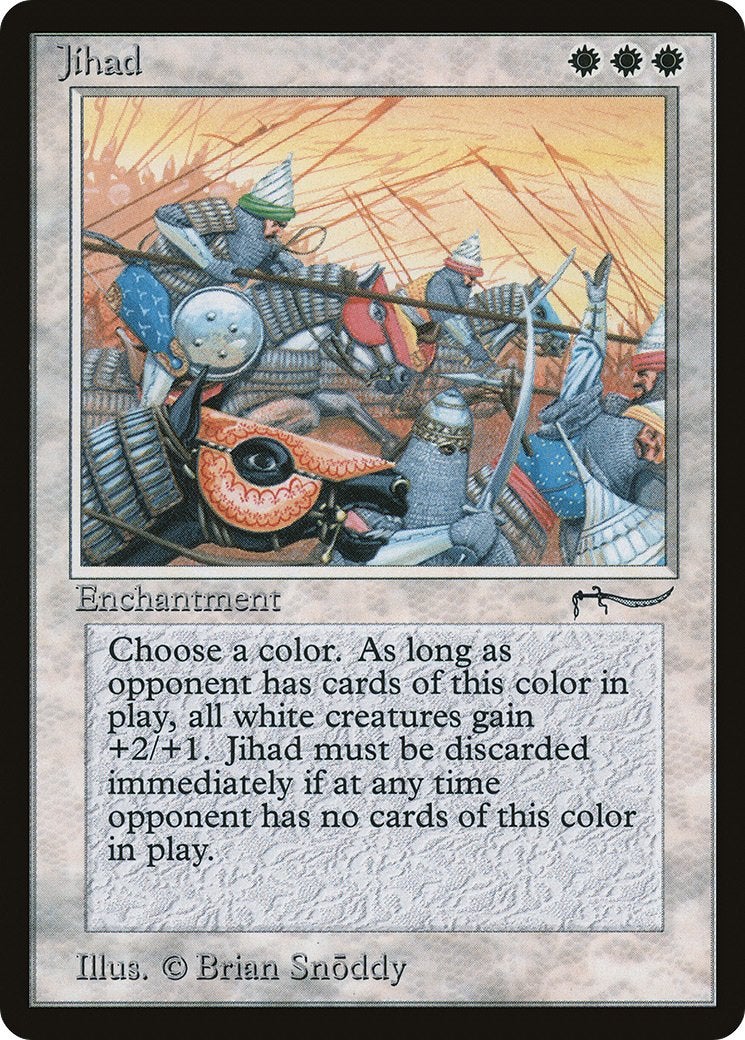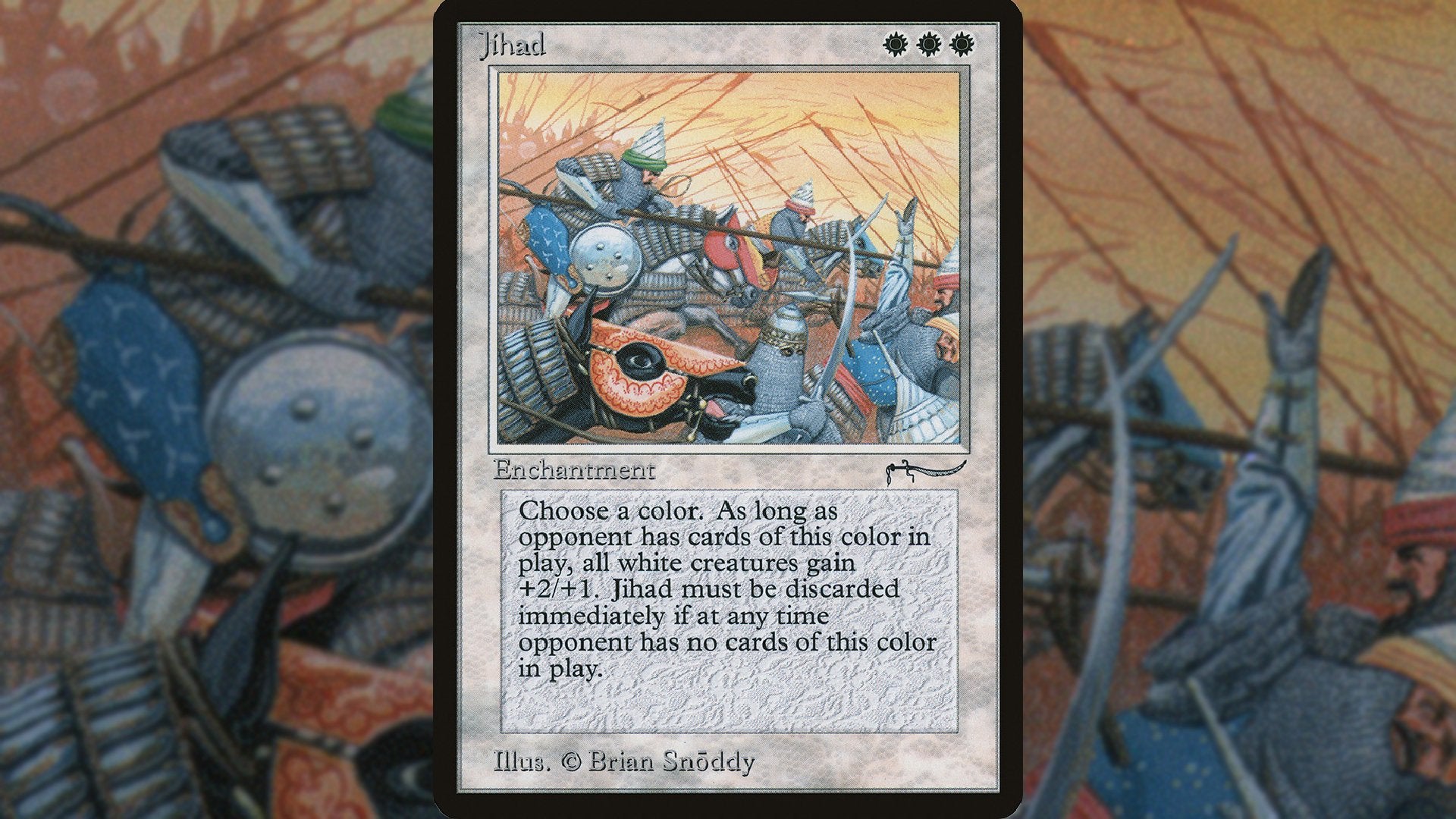![]() Key Takeaway
Key Takeaway
In MTG, Jihad is a white enchantment that costs three white mana to cast. It was released in 1993 through Magic: The Gathering’s first expansion: Arabian Nights.
Jihad usually sells anywhere between $200 for a poor-quality card to around $800 for near-mint specimens.
Booster packs of Arabian Nights were only available for two months: from December 1993 to January 1994. This led to the prices for Arabian Nights booster packs skyrocketing after January 1994.
Looking back at old Magic: The Gathering sets can be nostalgic and—sometimes—confusing. This is especially true considering how poorly certain themes age conceptually, as with the Jihad enchantment in MTG. Despite the negative connotations, collectors are still after this rare and banned card.
Table Of Contents
What Is Jihad in MTG?
Jihad is a white enchantment that costs three white mana to cast. It was released in 1993 through Magic: The Gathering’s first expansion: Arabian Nights.
The Jihad card has three effects—and all are connected. Since the card’s text is pretty old—resulting in a lack of clarity compared to modern cards—we’ll paraphrase it to explain Jihad’s mechanics more clearly.
- Choose a color (one of the five mana colors)
- If your opponent has any cards (permanents) of the chosen color in play, all white creatures (including your opponent’s) gain 2 power and 1 toughness
- If your opponent stops having cards (permanents) of the chosen color in play, destroy Jihad

Jihad MTG Single Card Prices
If you look online at websites that sell individual MTG cards, you’ll find available copies of Jihad up for sale anywhere between $200 for a poor-quality card to around $800 for a specimen that’s in near-mint condition. There are also Jihad cards for sale above $1000 (USD). However, that’s woefully overpriced. As of writing this, the site with the best deals for snagging a copy of Jihad is Card Trader.
The Reason for This Card’s High Prices
This card getting banned in all formats due to its alleged cultural offensiveness is not the reason it’s so sought after by collectors. Its contemporarily inappropriate card art and highly interruptable text definitely result in an infamous legacy. With that said, there’s more at play here.
Due to Arabian Nights being Magic: The Gathering’s first expansion, many of its limited-printed cards are worth a lot of money. Overall, five million cards from this set were printed. It also had a very short run time compared to later-released expansions. Booster packs of Arabian Nights were only available for two months: from December 1993 to January 1994. This led to the prices for Arabian Nights booster packs skyrocketing after January 1994.
Is the Jihad Card Racist?
Short answer: no.
This card’s offensiveness falls under what we’re calling ‘retroactive racism.’ Back in 1993, terms like “jihad” didn’t have the connotations they do today. After countless modern conflicts with terrorist groups originating from Middle Eastern countries, the West perceives “jihad” as something dangerous. In actuality, it has a much less sinister meaning.
Literally speaking, “jihad” is an Arabic word that means “strive,” “effort,” or “struggle.” When used in a cultural context within Islam, the term “jihad” refers to many different concepts—from internal struggles within oneself to actual wars waged between groups of people. Now that you have some context, let’s examine the MTG card.
On this enchantment card, there are armored warriors astride war steeds. Clearly, there is a fierce battle raging—a war-like jihad. Technically, there is nothing that can be considered offensive here. It would be the same if you had an MTG setting based on France depicting a battle on a card named “Guerre” (French for “war”).
It’s only the contemporary interpretation of the word “jihad” that causes people to find this card offensive. With that said, due to the context of modern times, it’s completely understandable why Wizards of the Coast acted the way they did in banning Jihad and a few other cards from the Arabian Nights expansion.
Personally, we’re more offended by awful mechanics than retroactive concepts. For example, the Banding ability that was abandoned over two decades ago was way more of a headache to deal with than any term originating from Arabian Nights. Let’s hope Wizards of the Coast never brings the former back. Good riddance!


